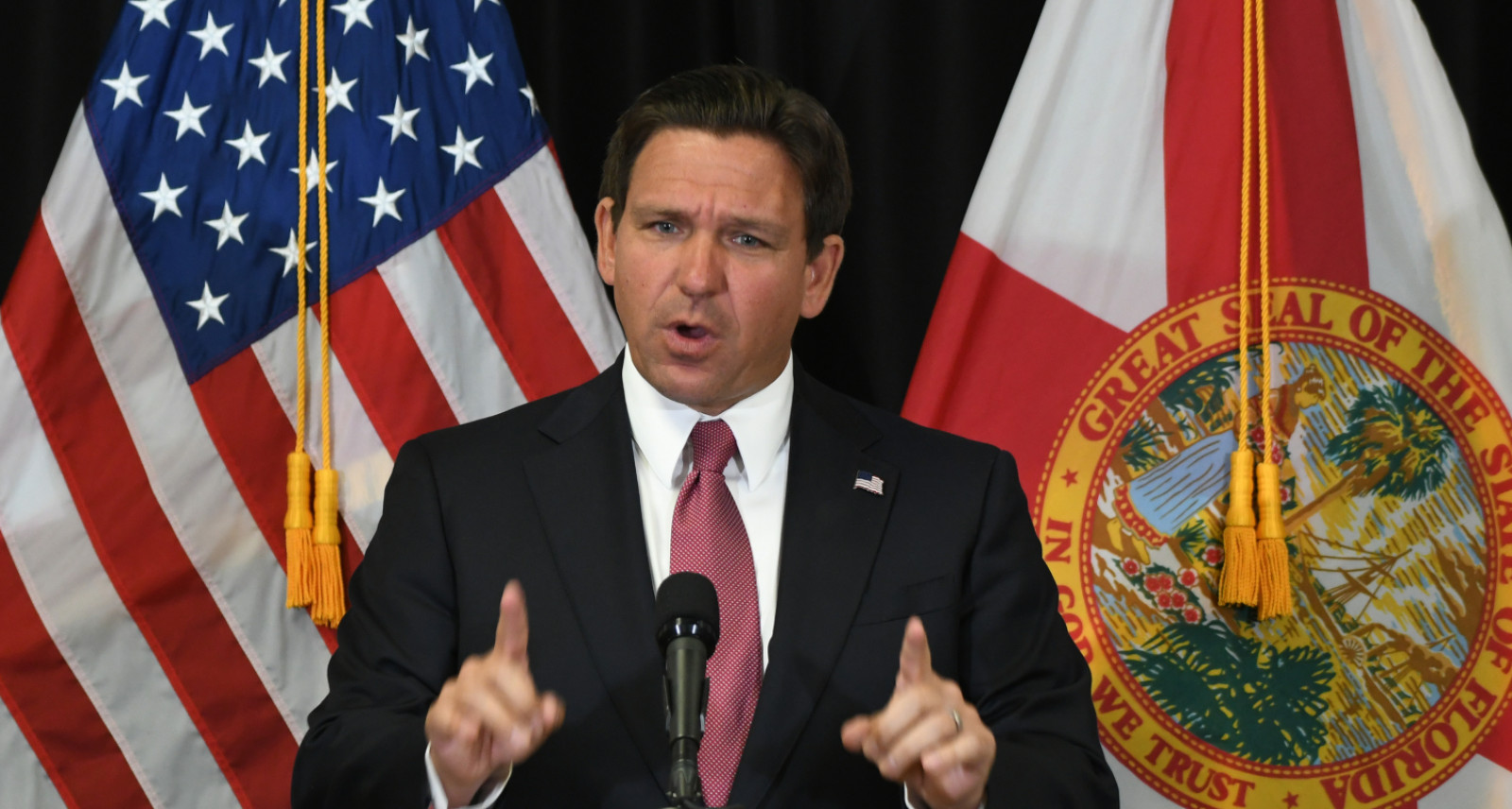OPINION: This article may contain commentary which reflects the author's opinion.
Florida Gov. Ron DeSantis responded to this week’s dockworker’s strike by ordering National Guard troops to ports to keep them open and operating while simultaneously trashing the Biden-Harris administration for not doing anything to mitigate the strike or its impact on global and domestic trade.
DeSantis made the announcement early Thursday, saying that the Florida National Guard and Florida State Guard were being deployed to “critical ports affected to maintain order and, if possible, resume operations which would otherwise be shut down during this interruption.”
The announcement follows Hurricane Helene’s passage through several southern states late last week, which resulted in significant flooding, devastating many communities and claiming at least 200 lives.
“And I would say that this is something that would have significant impacts on the nation’s economy anyways, but to have this happen in a way that could negatively impact people that are reeling from a Category 4 Hurricane, that is just simply unacceptable,” DeSantis said.
“So it really is incumbent upon the Biden-Harris administration to do everything in their power to ensure that these goods are where [they] need to be, that people are not left hanging out in the cold waiting for these goods if they’re sitting in the ocean somewhere and they’re not being able to be used here in the state of Florida or in Georgia or in North Carolina, or where people are going to desperately need this,” DeSantis added.
He also said that Biden-Harris had a “responsibility to stand up for the storm victims, stand up for the people who have had their homes damaged or who have lost their homes, and make sure they have what they need to get back on their feet.”
DeSantis also announced additional measures to help get goods from ports to the market:
- “The Florida National Guard and Florida State Guard will be deployed to ports affected by the strike to maintain order and, where possible, resume operations at ports which are otherwise shut down.”
- “The Florida Department of Transportation will waive the collection of tolls and fees as well as size and weight restrictions for commercial vehicles, which will help expedite the transportation of goods from our ports while offsetting operational costs.”
- “The Florida Highway Patrol will manage the flow of traffic from all Florida seaports as needed to further expedite the flow of goods held up by the strike. FHP will provide law enforcement escorts for commercial motor vehicles upon request.”
He noted further: “Unlike the federal government, Florida is taking decisive action to ensure that our economy continues to function and that victims of Hurricane Helene will have access to what they need to rebuild.”
WATCH:
At my direction, the Florida National Guard and the Florida State Guard will be deployed to critical ports affected by the strike to maintain order and, where possible, resume operations.
It is unacceptable for the Biden-Harris administration to allow supply chain interruptions… pic.twitter.com/KfzVbBgI10
— Ron DeSantis (@GovRonDeSantis) October 3, 2024
Meanwhile, DeSantis is warning anew that if Vice President Kamala Harris is elected president, her economic policies will lead to the next “depression.”
The onetime 2024 GOP presidential contender sharply criticized Harris’ policy to lower soaring food prices by prohibiting price gouging, calling it a blatant “lie.” He argued further that her approach overlooks the fundamental problems of supply chain disruptions and the “massive” amounts of printed and borrowed money.
He also said he believes Harris’ policies could potentially push the country “into a depression.”
“Supply chains are interrupted and there’s massive amounts of printing money, which has had huge impacts,” he said at a Bradenton press conference Friday morning, according to The Floridian, referring to the nation’s $35.27 trillion debt, and the 2025 money print order valued at $83.2 billion to $113 billion.
“Harris was there for this—she cast the vote for some of these major spending initiatives that really fueled inflation,” he added.
Harris has noted that the U.S. inflation rate is currently at 2.5%, the lowest since March 2021. However, prices are still over 20% higher since the start of the pandemic in February 2020, indicating that prices are still rising, just at a slower pace.
